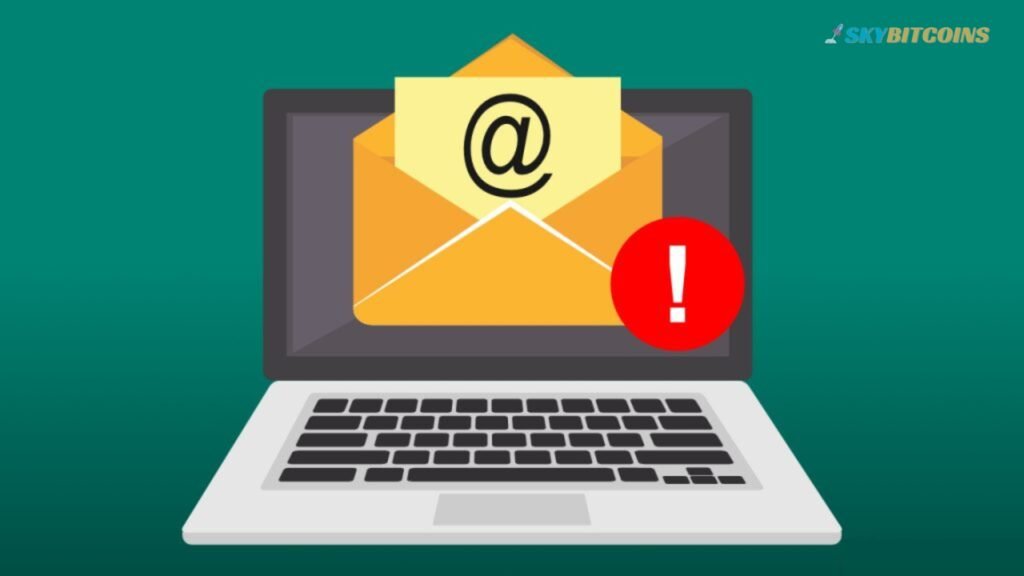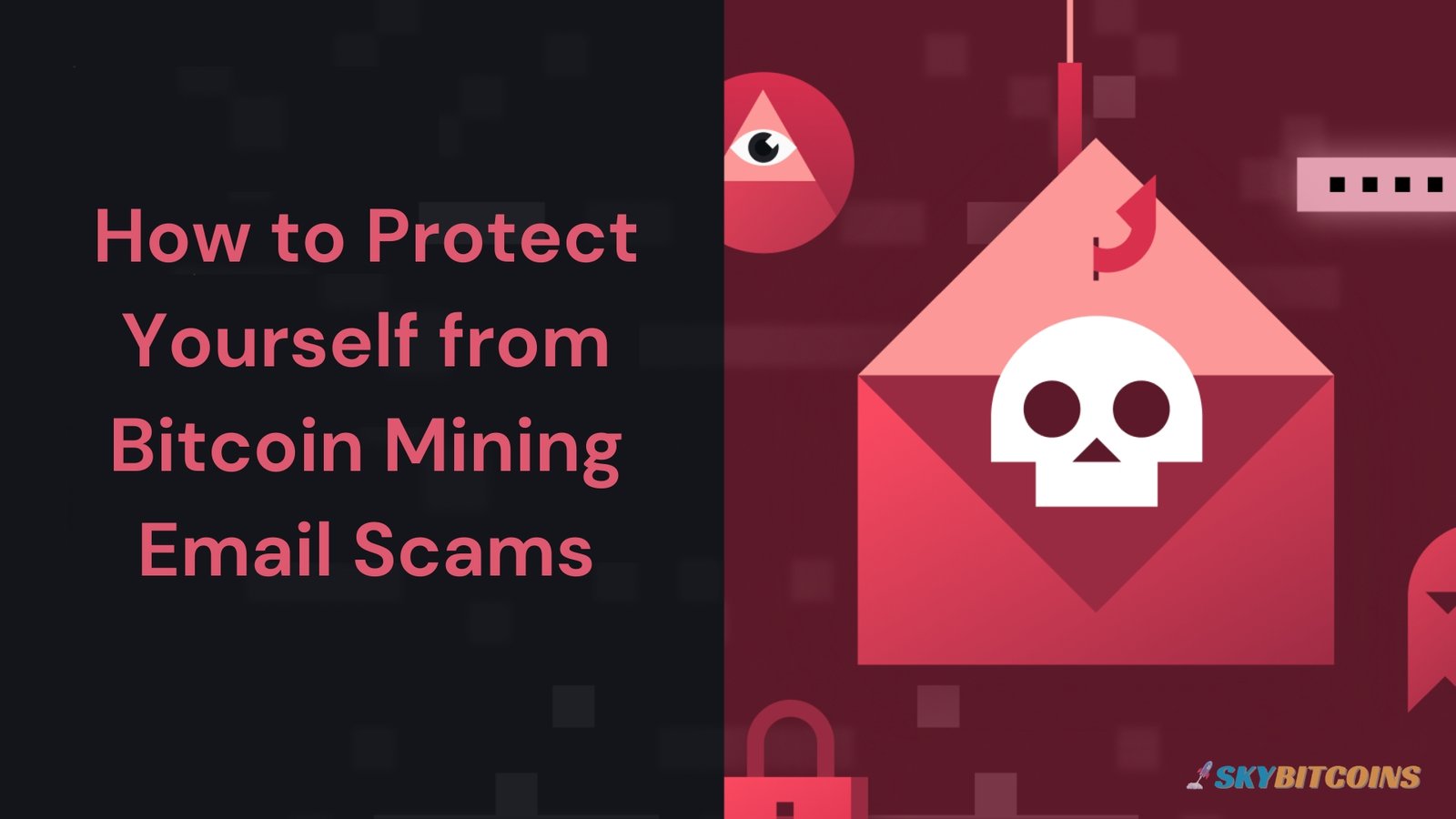Along with the meteoric rise of cryptocurrency’s popularity in the past few years, a corresponding increase of scams has been aimed at newcomers and seasoned pros. One example is the recent uptick in Bitcoin mining email scams, which prey on the anonymity and intricacy of the cryptocurrency market. This essay explores the inner workings of these frauds, how they function, and what measures you can use to safeguard yourself.
Understanding Bitcoin Mining and Its Appeal
Before delving into the specifics of the scam, it’s essential to understand Bitcoin mining. Bitcoin mining is the process by which new bitcoins are entered into circulation. It involves solving complex mathematical problems requiring significant computational power, which consumes much electricity. Miners are rewarded with a certain number of bitcoins for their efforts, making it a potentially lucrative activity for those with the necessary resources.
However, the technical complexity and high cost associated with mining have created a market for mining services, where companies offer to mine on behalf of individuals in exchange for a fee. This is where the opportunity for scams arises.
Anatomy of a Bitcoin Mining Email Scam
Bitcoin mining email scams typically start with an unsolicited email, often designed to appear as though it comes from a legitimate cryptocurrency or technology company. The email usually allows the recipient to participate in a profitable Bitcoin mining operation with minimal effort. These emails often include language designed to create a sense of urgency, such as limited-time offers or exclusive invitations.
The scam operates in several ways:
Phishing for Personal Information
Some emails include links to fake websites designed to look like legitimate Bitcoin mining platforms. Once on the site, victims are asked to input sensitive information, such as cryptocurrency wallet addresses, personal identification details, or credit card numbers. The scammers then use this information to steal funds or commit identity theft.
Fake Investment Opportunities
Another common tactic involves emails that offer users the chance to invest in a new or existing Bitcoin mining operation. Victims are promised high returns on their investment, often with minimal risk. However, once they transfer their funds, the scammers disappear, leaving the victims nothing.
Malware Distribution
Sometimes, the email may contain an attachment or a link to download software purported to be a Bitcoin mining tool. These downloads often contain malware designed to compromise the victim’s computer, steal cryptocurrency wallets, or even turn the computer into part of a botnet used for further illegal activities.
Extortion and Blackmail
Some scammers take a more aggressive approach, sending emails claiming that they have hacked the recipient’s computer and have evidence of illicit activity. The scammer demands payment in Bitcoin to prevent the release of this (often non-existent) evidence. These emails can be particularly alarming for recipients, even though they are entirely baseless.
Recent Trends and Notable Cases
In recent months, the sophistication and frequency of Bitcoin mining email scams have increased noticeably. Scammers now use more advanced techniques, such as deepfake technology and AI-generated content, to create convincing emails and fake websites. Moreover, the rise of ransomware-as-a-service (RaaS) platforms has made it easier for less tech-savvy criminals to launch scams.
One notable case involved a scammer who impersonated a well-known cryptocurrency exchange, sending emails offering a “special promotion” for a Bitcoin mining service. Victims were redirected to a website that mimicked the exchange’s official site, where they were prompted to enter their credentials. Many fell for the scam, resulting in significant financial losses.
Bitcoin Mining Email Scam: Another recent trend is using social engineering tactics to gain the trust of potential victims. Scammers might engage in prolonged email exchanges, posing as legitimate representatives of mining companies or even pretending to be technical support staff. Over time, they build trust with the victim before asking for payment or sensitive information.
How to Protect Yourself from Bitcoin Mining Email Scams
Given the increasing prevalence of these scams, individuals must be vigilant and take steps to protect themselves. Here are some key tips:
- Be Skeptical of Unsolicited Emails: An email offering a too-good-to-be-true investment opportunity or mining service is likely a scam. Legitimate companies rarely, if ever, send out unsolicited offers of this nature.
- Verify the Sender: Always double-check the sender’s email address. Scammers often use email addresses similar to legitimate ones but with slight variations, such as replacing an “o” with a “0” or adding extra characters.
- Avoid Clicking on Links or Downloading Attachments: If you receive an email from an unknown sender, do not click on any links or download any attachments. These could lead to phishing sites or malware.
- Use Strong, Unique Passwords: Ensure you use strong, unique passwords for all your online accounts, particularly cryptocurrency-related ones. Consider using a password manager to help keep track of your passwords.
- Enable Two-Factor Authentication (2FA): Enable 2FA on your accounts whenever possible. This adds an extra layer of security by requiring a second form of verification in addition to your password.
- Educate Yourself: The more you know about cryptocurrency and the associated risks, the better equipped you will be to recognize scams. Keep up to date with the latest news and trends in the cryptocurrency world.
- Report Suspicious Activity: If you receive a suspicious email, report it to the appropriate authorities or the platform being impersonated. This helps prevent others from falling victim to the same scam.
Conclusion
As cryptocurrency grows in popularity, so will the scams that seek to exploit it. Bitcoin mining email scams are just one of the many threats cryptocurrency users face. You can protect yourself from becoming a victim by staying informed, exercising caution, and taking the necessary precautions.
Remember, if an offer seems too good to be true, it probably is. Always research and approach any unsolicited cryptocurrency-related emails with a healthy dose of skepticism. Your vigilance could be the key to safeguarding your digital assets in an increasingly dangerous online landscape.




